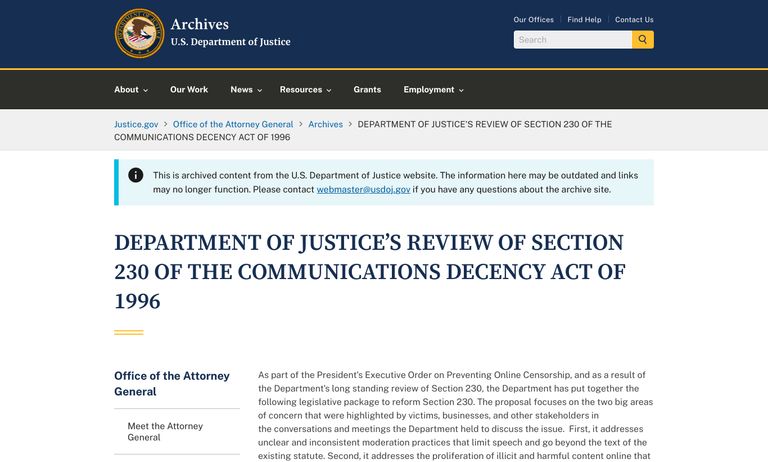As the world of technology continues to evolve, so does the need for regulatory frameworks that can foster innovation while protecting consumers and developers.
One such example is Section 230 of the Communications Decency Act of 1996, which has played a crucial role in the growth of the internet and online services.
By providing immunity to online service providers from liability for user-generated content, Section 230 has enabled the rapid expansion of online platforms and the promotion of free speech.
However, as we look towards the future of crypto and AI, it's essential to consider the lessons learned from Section 230 and develop regulatory frameworks that can address the unique challenges posed by these emerging technologies.

Section 230
The Impact and Advantages of Section 230
Section 230 has had a profound impact on the internet and online services, with several key advantages:
- Promotion of Free Speech: Section 230 has allowed online platforms to foster free speech and open communication by reducing the risk of legal liability for user-generated content.
- Innovation and Growth: By limiting legal liability, Section 230 has enabled the rapid growth and innovation of online services, contributing to the United States becoming a leader in technology.
- Content Moderation: Section 230 has allowed online platforms to develop and implement content moderation policies that balance free speech with the need to protect users from harmful or illegal content.
Side Effects of Section 230
Despite its advantages, Section 230 has also faced criticism for several side effects:
- Spread of Misinformation and Harmful Content: Critics argue that Section 230 has allowed the spread of misinformation, hate speech, and other harmful content on online platforms, as companies are not held legally responsible for user-generated content.
- Inconsistent Content Moderation: Some argue that Section 230 has led to inconsistent content moderation policies across different platforms, making it difficult for users to understand what content is allowed and what is not.
Regulatory Frameworks for Crypto and AI Development
As we consider the future of crypto and AI, it's crucial to develop regulatory frameworks that can address the unique challenges posed by these emerging technologies. Here are some potential approaches:
- Clear and Consistent Regulations: Establish clear and consistent regulations that provide legal certainty for developers and companies, enabling them to innovate and grow without the fear of regulatory uncertainty.
- Legal Protection for Decentralized Systems: Provide legal protection for non-custodial open protocols in cryptocurrencies, similar to Section 230, to foster innovation and growth in the decentralized finance (DeFi) ecosystem.
- AI Liability Framework: Develop a liability framework for AI developers and companies that balances innovation with accountability for the actions of their AI models. This could include provisions for data privacy, transparency, and explainability.
- Consumer Protection: Implement robust consumer protection measures, such as disclosure requirements, anti-fraud measures, and user education initiatives, to ensure that consumers are protected from potential risks associated with crypto and AI technologies.
- International Cooperation: Encourage international cooperation and harmonization of regulations to prevent regulatory arbitrage and ensure a level playing field for all market participants.
The lessons learned from Section 230 highlight the importance of regulatory frameworks that can foster innovation while protecting consumers and developers. As we look towards the future of crypto and AI, it's essential to develop regulatory frameworks that can address the unique challenges posed by these emerging technologies. By doing so, we can ensure that these technologies can reach their full potential while minimizing potential risks and harm.
This article is for informational purposes only and should not be considered investment advice. Always conduct your own research and consult with a financial advisor before making any investment decisions.